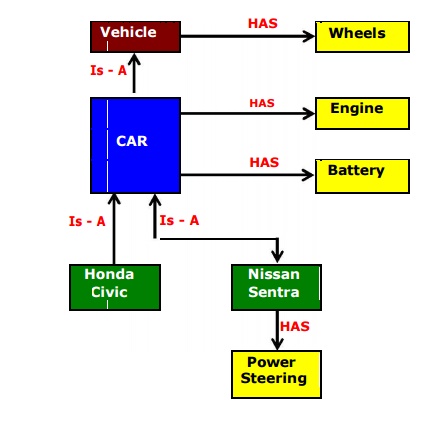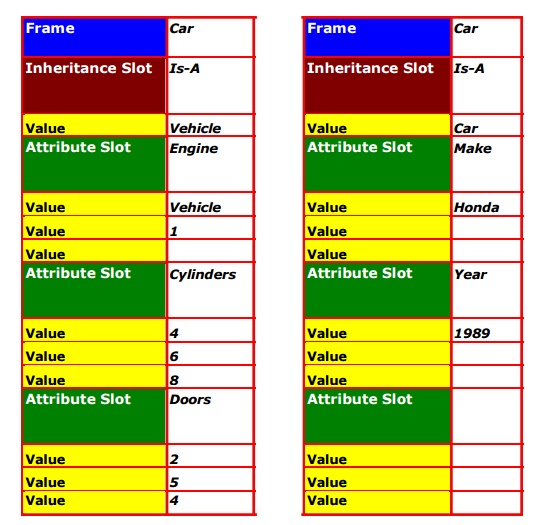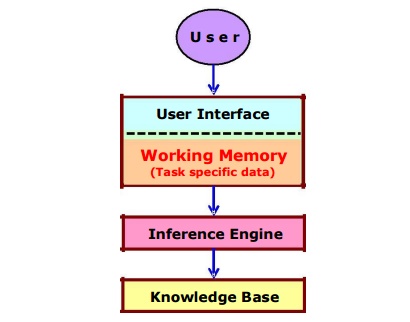Chapter: Artificial Intelligence(AI) : Expert System
Knowledge Base (Representing and Using Domain Knowledge)
Knowledge Base (Representing and Using Domain
Knowledge)
Expert system is built around a knowledge base module.
Expert system contains a formal representation of the information provided by the domain expert. This information may be in the form of problem-solving rules, procedures, or data intrinsic to the domain. To incorporate these information into the system, it is necessary to make use of one or more knowledge representation methods. Some of these methods are described here.
Transferring knowledge from the
human expert to a computer is often the most difficult part of building an
expert system.
The knowledge acquired from the human
expert must be encoded in such a way that it remains a faithful representation
of what the expert knows, and it can be manipulated by a computer.
Three common methods of knowledge
representation evolved over the years are IF-THEN rules, Semantic
networks and Frames.
The first two methods were
illustrated in the earlier lecture slides on knowledge representation therefore
just mentioned here. The frame based representation is described more.
1. IF-THEN rules
Human experts usually tend to think
along :
condition ⇒ action or Situation ⇒ conclusion
Rules "if-then" are predominant form of encoding
knowledge in expert systems. These are of the form :
If a1
, a2 , . . . . . , an
Then b1 , b2 , . . . .
. , bn where
each ai is a condition or situation, and
each bi is an action or a conclusion.
2. Semantic Networks
In this scheme, knowledge is
represented in terms of objects and relationships between objects.
The objects are denoted as nodes of
a graph. The relationship between two objects are denoted as a link between the
corresponding two nodes.
The most common form of semantic
networks uses the links between nodes to represent IS-A and HAS relationships between objects.
Example of Semantic Network
The Fig. below shows a car IS-A
vehicle; a vehicle HAS wheels.
This kind of relationship
establishes an inheritance hy hiera in the network, with the objects lower down
in the network inheriting properties from the objects higher up.

3. Frames
In this technique, knowledge is
decomposed into highly modular pieces called frames, which are generalized
record structures. Knowledge consist of concepts, situations, attributes of
concepts, relationships between concepts, and procedures to handle
relationships as well as attribute values.
‡ Each concept may be represented
as a separate frame.
‡ The attributes, the relationships
between concepts, and the procedures are allotted to slots in a frame.
‡ The contents of a slot may be of
any data type - numbers, strings, functions or procedures and so on.
‡ The frames may be linked to other
frames, providing the same kind of inheritance as that provided by a semantic
network.
A frame-based representation is
ideally suited for objected-oriented programming techniques. An example of
Frame-based representation of knowledge is shown in next slide.
Example : Frame-based Representation of Knowledge.
Two frames, their slots and the
slots filled with data type are shown.

Working Memory
Working memory refers to task-specific data for a problem. The contents of the working memory, changes with each problem situation. Consequently, it is the most dynamic component of an expert system, assuming that it is kept current.
‡ Every problem in a domain has some unique data associated with it.
‡ Data may consist of the set of conditions leading to the problem, its parameters and so on.
‡ Data specific to the problem needs to be input by the user at the time of using, means consulting the expert system. The Working memory is related to user interface
Fig. below shows how Working memory is closely related to user interface of the expert system.

Related Topics